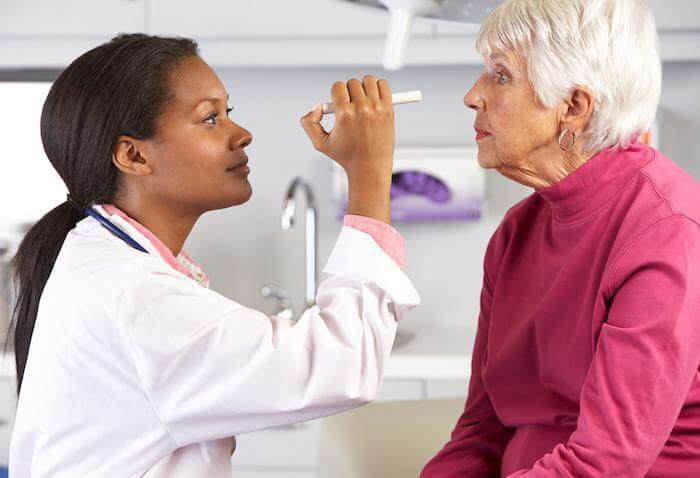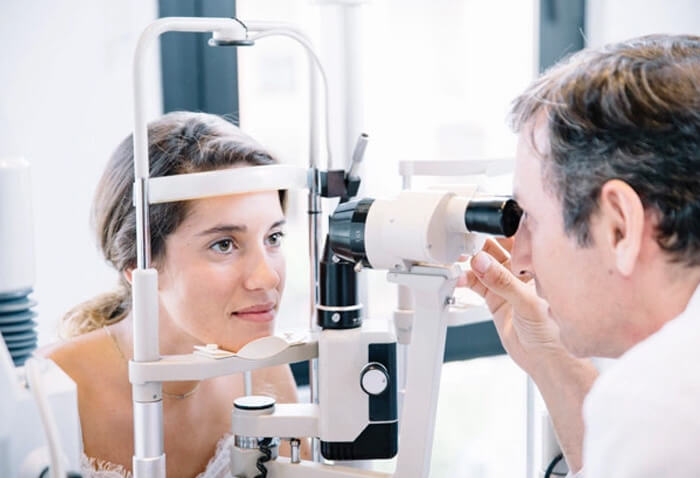Link Between Diabetes and Your Eye Health
According to the American Diabetes Association, people suffering from either type 1 or type 2 diabetes, a disease where your blood sugar or glucose levels remain too high, possess a greater risk than the general population of eye disease and eventual blindness. It’s especially crucial that they be seen regularly by an optometrist to maintain good eye health. The Classic Vision Care optometrists in Kennesaw and Marietta, Georgia, examine your eyes to ensure they remain in tip-top shape.
People with diabetes are more susceptible to certain eye-related diseases. Dr. Patel and our team diagnose such eye issues as:
Retinopathy
High blood sugar levels due to diabetes may inflict damage upon the small blood vessels in your retina. Left untreated, this can cause blindness. Symptoms of diabetic retinopathy include:
- Blurry vision
- Floaters, such as spots, lines, or circles, in your eye
- Dark or blank areas within your field of vision
- Poor night vision
Many people with diabetes-related retinopathy won’t notice any vision changes at all. That’s why it’s crucial to receive regular checkups.
Glaucoma
The longer one suffers from diabetes, the more likely they’ll get glaucoma, the world’s second-highest cause of blindness. Glaucoma occurs when pressure increases in one or both of your eyes, compressing your blood vessels. This makes it more difficult for blood to flow to the retina and optic nerve at the back of your eyes. It also blocks your eye’s natural drainage system, resulting in diminished eyesight.
Cataracts
When your eye’s proteins bunch together, they can cause a cataract, a thick, cloudy area on your lens. Cataracts prevent your lens from sending clear images to your retina, resulting in blurred vision. We may suggest glare-controlled lenses or sunglasses for mild cases or replacing your eye’s lens with an artificial lens in more extensive situations. Diabetics, however, may experience complications following surgery, such as increased retinopathy, which can lead to glaucoma.
During extended periods of high blood sugar, as occurs with diabetes, fluid may accumulate within the eye’s lens, altering its curvature. This swelling leads to vision changes. You can usually correct these problems by maintaining proper blood sugar levels. We’ll help you keep your blood sugar within the target range to reverse certain eye conditions, enabling your lens to return to its normal shape.
It’s also important to control your cholesterol and blood pressure to warding off these issues. Once we diagnose your disease, our team advises you on how to proceed. Treatments for diabetic retinopathy include:
Photocoagulation
We make minuscule burns on your retina via laser to stop blood vessels from increasing and possibly leaking.
Vitrectomy
When photocoagulation is no longer an option, we reduce blood within the eye by removing scar tissue and fluid.
Our team also injects a drug to block the hormone called vascular endothelial growth factor (VEGF), which encourages the growth of weaker blood vessels within your eyes. Anti-VEGF drugs halt this development to counteract vision changes due to diabetic retinopathy.
An ounce of prevention
The sooner we diagnose your eye problems, the better. To schedule your yearly diabetic eye exam, or discuss any diabetes-related or other eye issues with our experienced optometrists, call us or book an appointment online with Classic Vision Care today.



